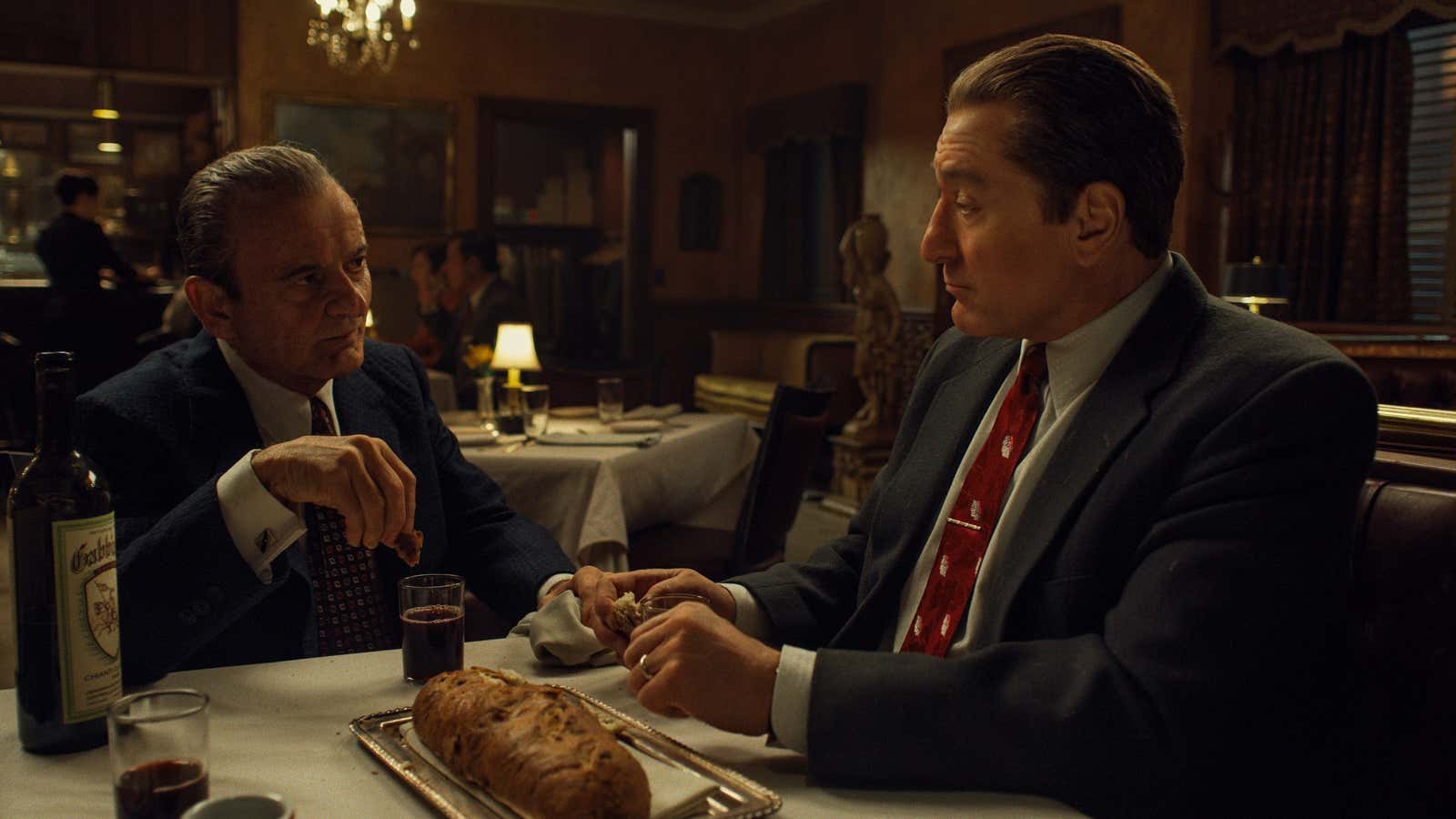In 2019, Netflix scored its first Oscar nomination for best picture. A year later, the streaming service is leading the field in total nominations.
Movies released by Netflix earned 24 nominations this year, nearly doubling its all-time total. Leading the way for the company this year are The Irishman and Marriage Story, which earned 10 and 6 nominations, respectively—including best picture nods for both. As Netflix’s impact on the world of cinema becomes increasingly undeniable, the younger and more diverse film academy is no longer shunning the streaming service as the old Hollywood guard tried to do.
In addition to its two best picture nominations, the haul from Netflix, which released its first feature in 2015, reached virtually every category, from acting (where it received seven nominations) to writing to visual effects.
Netflix’s 24 nominations were two more than Disney’s total, even when combining all of the nominations earned by Disney’s various studios into a single number. (Disney’s empire now includes 20th Century Fox and Fox Searchlight.)
Threatened by the implications of Netflix’s arrival on the film scene, the members of the Academy of Motion Picture Arts and Sciences—the industry professionals who vote on the Oscars—had resisted awarding the streaming service with nominations. Hollywood has not been pleased with Netflix’s decision to release most of its films to subscribers online the same day that they’re put in theaters, which challenges the century-old relationship between distributors and theater owners. Nor are they happy with the small number of theaters that Netflix does allow its movies to be screened in.
But now voters are clearly coming around to the benefits of streaming. Though they might not be in movie theaters, more people are seeing these films than if they were given a traditional theatrical release. Director Martin Scorsese—as Hollywood as Hollywood gets—said that he wouldn’t have been able to make The Irishman with a traditional studio. The major studios were unwilling to take on the financial risk of the three-hour mob drama, the director said. The deep-pocketed Netflix, however, was more than game, since it didn’t have box office receipts to worry about.
Netflix has used those deep pockets to launch historically expensive Oscar campaigns, hoping to woo voters the old-school way, with lavish parties and elaborate advertisements. The result has been an annual increase in Oscar nominations for the streaming service:
Helping Netflix’s case is a voting pool that has grown more diverse in recent years, in reaction to controversies like #OscarsSoWhite. In 2016, after the second consecutive year of an all-white slate of acting nominees, the academy made a much-publicized effort to invite more women and minority members. These new members, many of whom hail from outside the United States, are probably Netflix users themselves and can understand the appeal of releasing a film to everyone in the world at the same time.
While it may have helped Netflix ingratiate itself among the Hollywood elite, the change in membership hasn’t adequately addressed the actual problem it was meant to correct. The acting nominations this year were still blatantly homogenous. Nineteen of the 20 nominees were white. The only black nominee, Cynthia Erivo, was nominated for portraying the former slave and abolitionist, Harriet Tubman. As usual, all five directing nominees were men.
That’s another area where Netflix can help the industry improve. The service has championed Oscar-worthy films directed by diverse filmmakers or ones featuring diverse casts, like 2017’s Mudbound and this year’s dramedy, Dolemite Is My Name, starring Eddie Murphy. Dolemite Is My Name was not nominated for any Oscars, even though its costume designer, Ruth E. Carter, became the first black designer to win an Oscar in history last year.
Netflix’s record nominations total is only going to convince even more talented filmmakers that the streaming service is a smart place to take their films. A world in which a majority of nominated films are distributed by Netflix and other streaming services may not be so far off.
